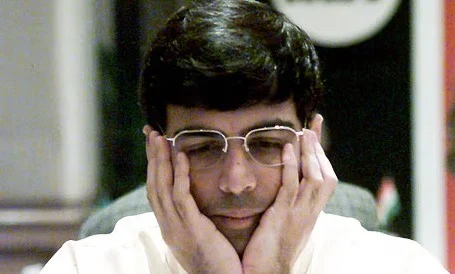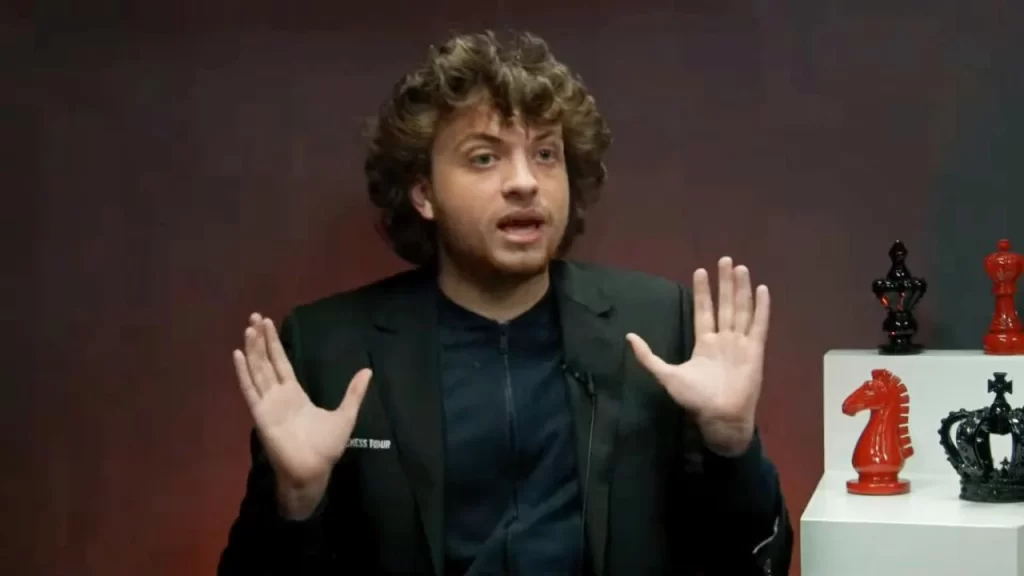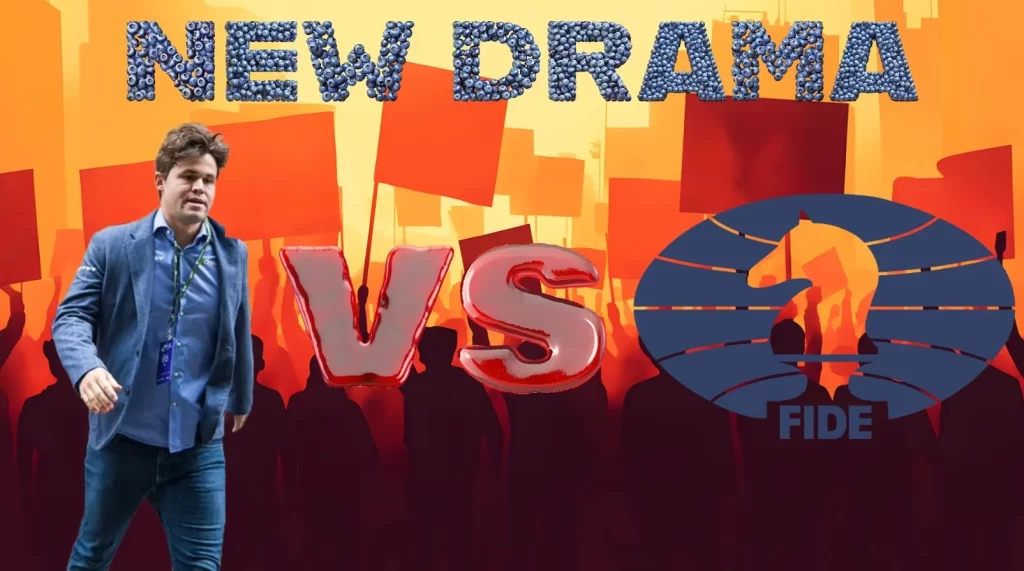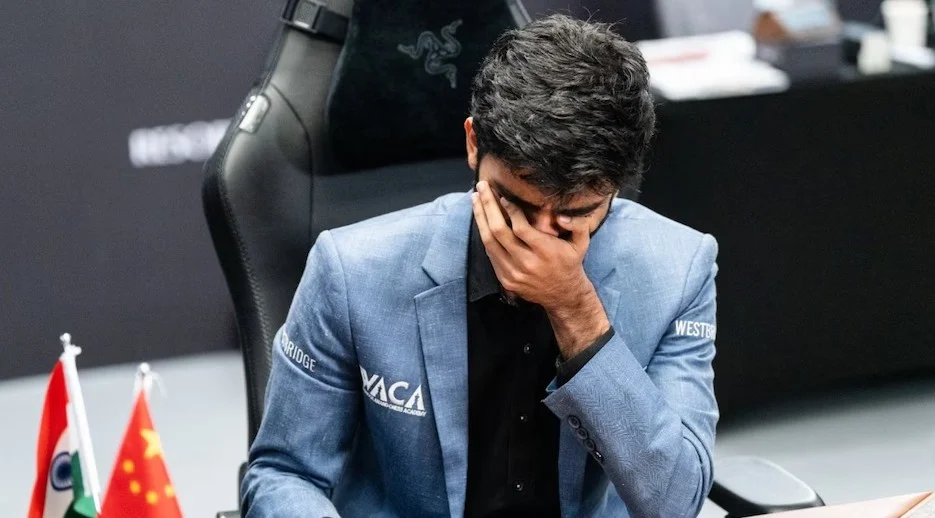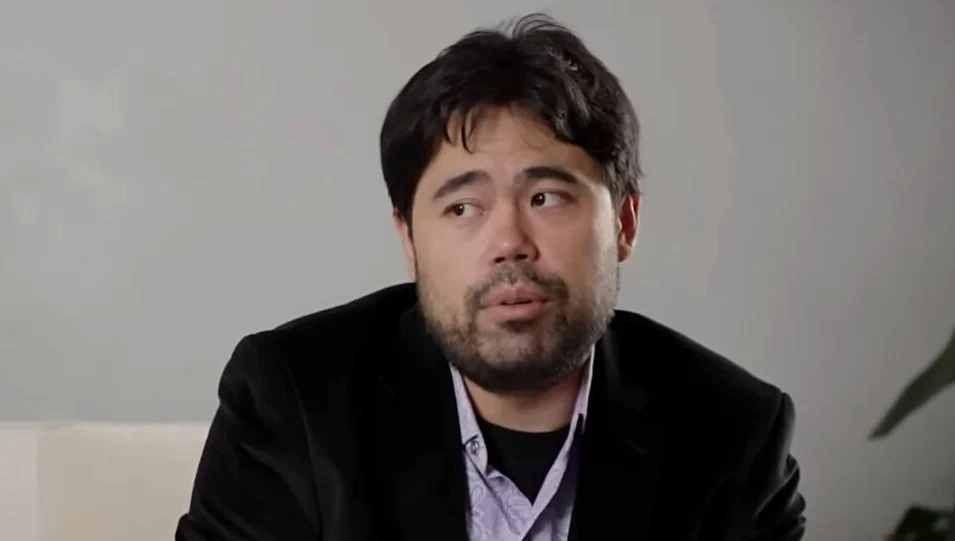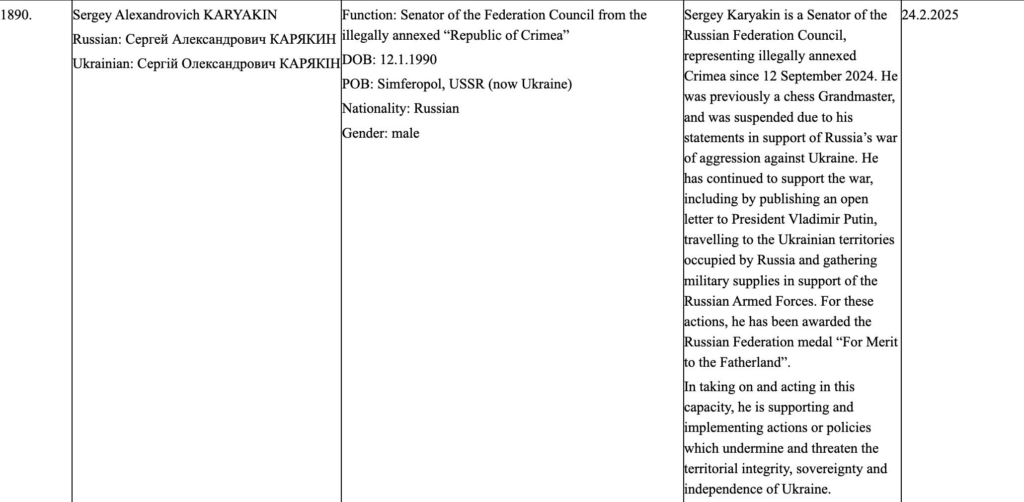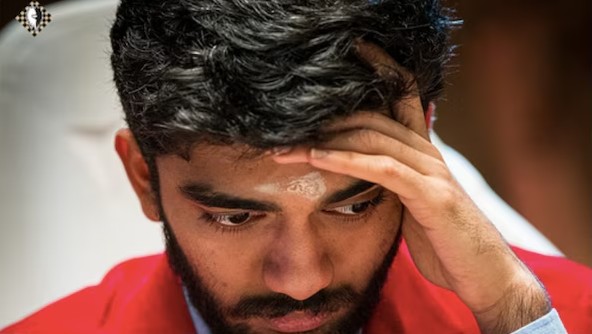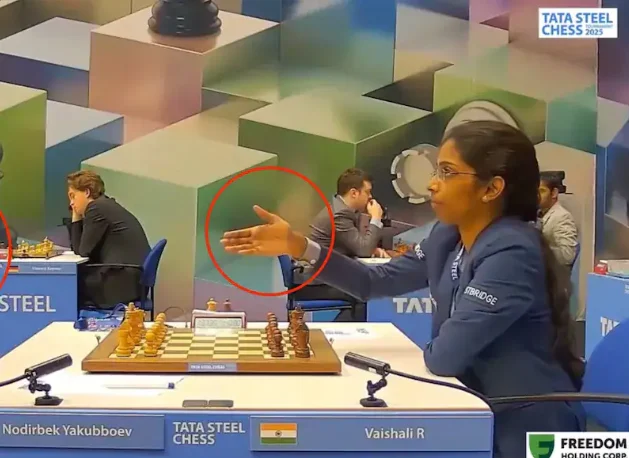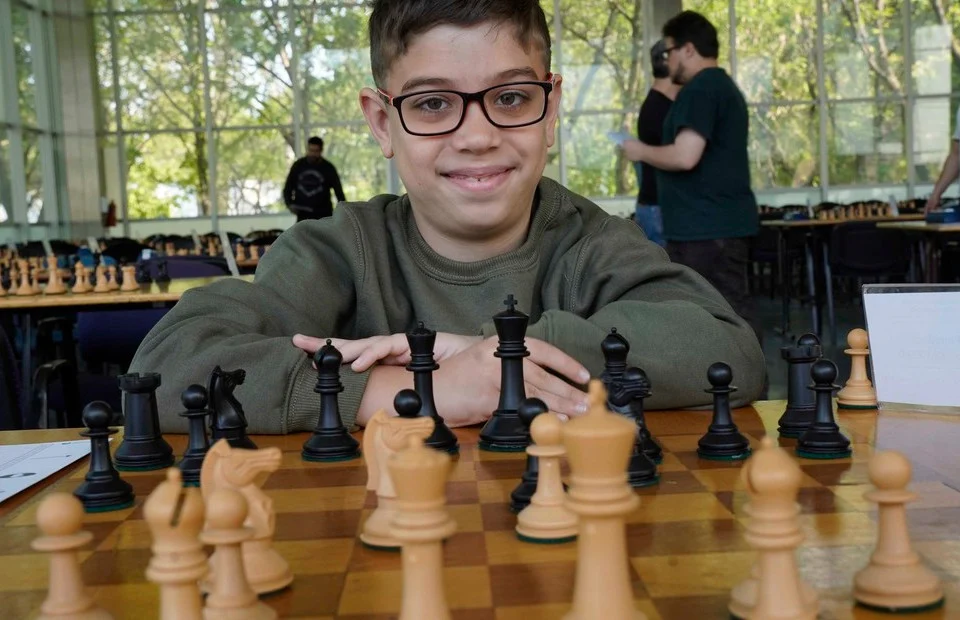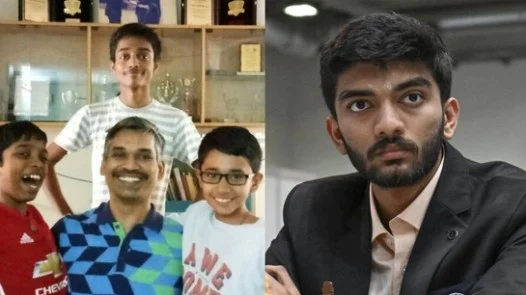
March 14, 2025—Buckle up, chess fans, because the chess world just got hit with a bombshell that’s sending shockwaves from Chennai to checkmate! India’s reigning World Chess Champion, D Gukesh, has been dramatically snubbed by one of the country’s most legendary coaches in a claim so wild, it’s got everyone talking. Instead of handing the crown of “Next Viswanathan Anand” to the 18-year-old prodigy who conquered the world title, Coach Ramachandran Ramesh has named a dark horse—Aravindh Chithambaram—as the most talented Indian chess player since the iconic Anand himself. And the reason? A jaw-dropping revelation about self-doubt that’s turning heads and raising eyebrows. Want to know more? Keep reading, because this story is a checkmate you won’t see coming—and it’s all unfolding right now at Summit School of Chess (www.summitschoolofchess.com)!
The Rise of D Gukesh: A Champion’s Journey
Let’s rewind the clock for a second. D Gukesh, the teenage sensation from Chennai, made history in December 2024 by becoming the youngest-ever World Chess Champion at just 18 years old. Beating China’s Ding Liren in a nail-biting 14-game showdown in Singapore, Gukesh didn’t just win a title—he ignited a chess revolution in India. Fans were ready to anoint him as the heir to Viswanathan Anand, the five-time world champ who’s been the face of Indian chess for decades. With an Elo rating soaring to 2787 and a spot as World No. 3, Gukesh seemed unstoppable. Analysts predicted he’d dominate the chessboard for years, and the hype was real.
But then came the twist no one expected.
Coach Ramesh Drops a Bombshell: It’s Not Gukesh!
Enter Grandmaster Ramachandran Ramesh, a chess coaching legend who’s trained some of India’s brightest stars—like R Praggnanandhaa and Vaishali Rameshbabu—at his Chennai academy. Known for his sharp eye for talent and no-nonsense takes, Ramesh just threw a curveball that’s left the chess community reeling. In an interview with Sportstar, he boldly declared that 25-year-old Aravindh Chithambaram—not Gukesh—is the most talented Indian player since Anand. Yep, you read that right. The reigning world champ didn’t even make the cut in Ramesh’s eyes!
Why? Ramesh pointed to Chithambaram’s raw, untapped potential, saying, “Self-doubt was his main stumbling block, but he has crossed it now.” This isn’t just a casual opinion—it’s a massive claim from a man who’s seen it all. And it’s got everyone asking: Is Gukesh’s throne already under threat? Could Chithambaram really be the next big thing? At Summit School of Chess (www.summitschoolofchess.com), we’re breaking it all down for you!
Who Is Aravindh Chithambaram? The Underdog Stealing the Spotlight
If you haven’t heard of Aravindh Chithambaram yet, you’re about to. This 25-year-old grandmaster has been quietly climbing the ranks, and he’s just hit a massive milestone—jumping to World No. 14 with an Elo of 2731. That’s right—he’s now ahead of Viswanathan Anand himself, who sits at No. 15. Chithambaram’s recent surge includes a stunning victory at the Prague Chess Masters 2025, where he outplayed none other than World No. 8 R Praggnanandhaa. Add to that his win at the Chennai Grand Masters against World No. 13 Levon Aronian, and you’ve got a player who’s proving he’s no fluke.
Ramesh calls him “the most talented after Anand,” and Indian chess fans are starting to agree. For years, Chithambaram was seen as a diamond in the rough—brilliant but inconsistent, held back by a lack of confidence. But now? He’s shed the self-doubt and is playing like a man possessed. Could this be the moment he steps out of the shadows and into chess immortality? Visit Summit School of Chess (www.summitschoolofchess.com) to learn more about rising stars like Chithambaram and how they’re reshaping the game!
Gukesh Snubbed: A Champion’s Fall from Grace?
So where does this leave D Gukesh? The kid who stunned the world with his title win is suddenly facing a reality check. Sure, he’s still India’s No. 1 and a global superstar, but Ramesh’s snub stings. It’s not just about rankings—Gukesh is third in the world, far ahead of Chithambaram’s 14th—but about legacy. Being compared to Anand isn’t just a compliment; it’s a mantle. And Ramesh handing that mantle to someone else? That’s a plot twist worthy of a Hollywood blockbuster.
Gukesh’s 2025 hasn’t been flawless, either. After his world title win, he hit a rough patch—finishing eighth at the Weissenhaus Freestyle Chess Grand Slam and losing to Praggnanandhaa in a tiebreaker at the Tata Steel Masters. Critics are whispering: Was his championship a fluke? Is he cracking under pressure? At Summit School of Chess (www.summitschoolofchess.com), we’ve got the analysis you need to decide for yourself—plus tips to boost your own game, no matter your level!
Self-Doubt: The Silent Killer of Chess Greatness
Here’s where the story gets juicy. Ramesh didn’t just praise Chithambaram—he revealed the secret sauce behind his rise: overcoming self-doubt. “He was not believing in himself,” Ramesh told Sportstar. “But he has crossed it now.” That’s a game-changer in chess, where mental toughness is everything. Gukesh, for all his brilliance, has faced his own mental battles—think back to that blunder-filled Game 1 against Ding Liren. He bounced back to win, but doubters wonder if he’s got the grit to stay on top.
Chithambaram, meanwhile, seems to have unlocked a new level by mastering his mind. It’s a lesson for every chess player out there: Talent alone won’t cut it. Want to conquer your own self-doubt and dominate the board? Summit School of Chess (www.summitschoolofchess.com) has the strategies and training to help you rise above—whether you’re a beginner or a grandmaster in the making!
The Next Viswanathan Anand: Who Will Claim the Crown?
Viswanathan Anand isn’t just a name—he’s a legend. Five world titles, decades of dominance, and a mentorship role that’s birthed a golden generation of Indian chess players. Gukesh has long been seen as his protégé, training under Anand’s WestBridge Anand Chess Academy. But now, Chithambaram’s stealing the spotlight, and the debate is on: Who’s the real heir?
Anand himself has stayed diplomatic, praising Gukesh’s “winning mentality” and Chithambaram’s potential. But with Ramesh’s bold claim, the chess world’s buzzing. Will Gukesh fight back to prove he’s the one? Or will Chithambaram’s quiet rise turn into a roar? At Summit School of Chess (www.summitschoolofchess.com), we’re tracking every move—join us to stay ahead of the curve!
Why This Matters for YOU, Chess Lover!
This isn’t just drama—it’s a wake-up call for every chess fan and player. The battle between Gukesh and Chithambaram is a masterclass in what it takes to be great: skill, heart, and an unbreakable mind. Whether you’re rooting for the champ or the underdog, there’s something here for you to learn and apply to your own game.
At Summit School of Chess (www.summitschoolofchess.com), we’re all about turning passion into power. Our expert coaches, cutting-edge resources, and vibrant community can help you unlock your potential—just like Chithambaram did. Want to play like a pro? Master your openings? Crush your opponents? We’ve got you covered. Sign up today and join the chess revolution!
The Checkmate Challenge: What’s Next?
The chess world’s on fire, and this Gukesh-Chithambaram saga is just the beginning. Will Gukesh reclaim his destiny as Anand’s successor? Can Chithambaram keep his hot streak alive? One thing’s for sure: The board is set, and the next moves are going to be epic. Don’t miss out—head to Summit School of Chess (www.summitschoolofchess.com) for the latest updates, expert insights, and your shot at chess greatness. Who’s your pick for the next Anand? Let us know in the comments, and let’s get this chess party started!
Link to the original article in Hindustan Times
Our Summer Chess Camps are the best!
We have daily Online Group Lessons for all players of all skill levels!
Our Monthly Chess Tournaments are great for testing your skills!
Get a School Chess Program today!
Join the official Summit School of Chess Club (on Chess.com)


